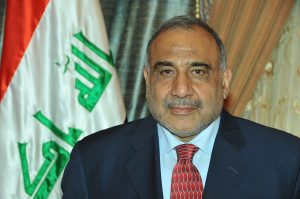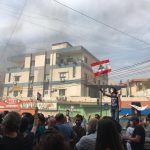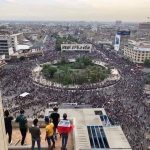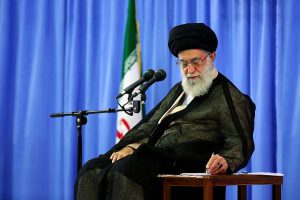Here’s David Ignatius, in The Washington Post, writing about the revised Israeli intelligence estimates about an Iranian bomb (2015, if you must know), with my emphasis:
The delays in the Iranian program are important because they add strategic warning time for the West to respond to any Iranian push for a bomb. U.S. officials estimate that if Iran were to try a “break out” by enriching uranium at Natanz to the 90 percent level needed for a bomb, that move (requiring reconfiguration of the centrifuges) would be detectable – and it would take Iran one to two more years to make a bomb.
The Iranians could try what U.S. officials call a “sneak out” at a secret enrichment facility like the one they constructed near Qom. They would have to use their poorly performing (and perhaps still Stuxnet-infected) old centrifuges or an unproven new model. Alternative enrichment technologies, such as lasers or a heavy-water reactor, don’t appear feasible for Iran now, officials say. Foreign technology from Russia and other suppliers has been halted, and the Iranians can’t build the complex hardware (such as a “pressure vessel” needed for the heavy-water reactor) on their own.
And here’s Eli Lake in the Washington Times, with a good article on the same subject in which he talks with neoconservative pundit Patrick Clawson of WINEP, again with my emphasis:
Patrick Clawson, a specialist at the Washington Institute for Near East Policy, said: “Certainly, the IAEA reports and what we hear from people knowledgeable about the nuclear program is that Iran is encountering significant technical problems.”
“The great worry is that Iran has clandestine facilities that will allow it to overcome these technical problems,” he said.
Now here’s Columbia professor Richard Bulliet, speaking at a forum called “War With Iran?”, where the event poster featured a gas mask emblazoned with the Israeli, Iranian, and U.S. flags (video here; start at minute 41):
Recently I was reading about the buildup to the war on Iraq, and one of the things that became apparent as you look back… is that after 1991, the U.S. put sanctions on Iraq that were essentially sanctions that could not be positively satisfied. Iraq could say ‘okay, we have completely given up WMD.’ And we could say, ‘we don’t believe you, and the only way we can be sure is to get rid of your regime.’
My worry is that we’re moving a little bit in this direction with Iran, that we’re creating a focus on a sanctions regime that it may not be possible for Iran to ever satisfy the fear of the people that are putting on the sanctions.
…If you had a statement from Iran that ‘we have stopped purifying uranium,’ you would have some people who would say: ‘Well, underground someplace they’re still doing it; there are hidden facilities. There are centerfuges going day and night, and we just don’t know where they are doing it. They’re in Saddam’s palaces which have now been shipped to Iran.’
And under that circumstance, you get to a logic that’s saying, if you sanction a regime to get it to change its behavior, but you do not believe there are any circumstances under which a claim to behavior change would actually be credible, then regime change is your only option.
How many of the people that campaign most tirelessly for sanctions think that they will work? How many thought they were a good idea in Iraq for a decade, then went ahead and pushed for a war there anyway?
This last point is at the crux of critically examining sanctions–which hurt ordinary Iranians. In Iraq, infant mortality rose from 1 in 30, in 1990, to 1 in 8, in 1997. That’s more than a threefold increase, in just seven years, of babies who did not live to see their first birthdays.
There was no evidence in Iraq of a weapons of mass destructions program. Was it a result of those same sanctions? I couldn’t say. But I do know that neoconservatives and their allies in power remained determined, even with the draconian sanctions, to make war on Iraq.




